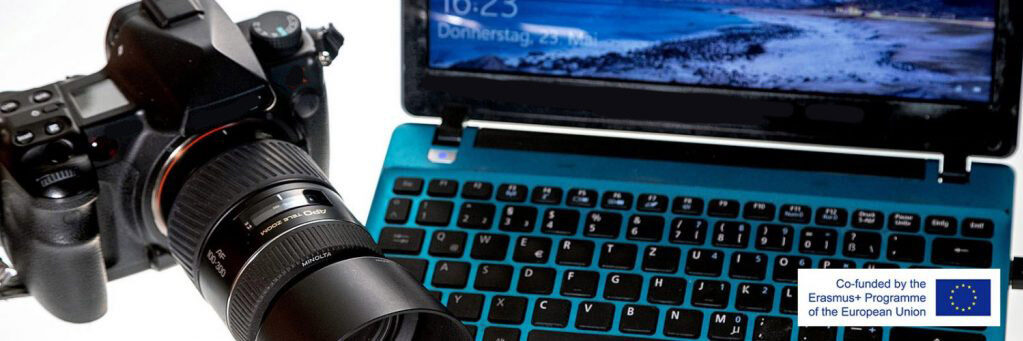The second run of the courses focused on amendments and further development of the course. The situation was made more difficult by COVID-19 and the associated measures. In some partner countries, for example, the organization of courses was not permitted or severely restricted. Out of these problems, the project team nevertheless tried to achieve added value for the project.
Austria
Since the implementation of a second run of the course was not possible due to the restrictions in winter and spring 2021 the Austrian team decide to implement a course for students at the upper High school level. This was possible as the schools were open. Harald Makl (from the EBI) has run the course with two classes with 17 up to 18 years old students. The feedback was excellent and many learned approached the content and evaluated the course as valuable and useful.
With this activity, a technical issue in the frame of transferability of the course could be cleared: It was possible, without problems, to install the course modules at e server several version numbers below the developer server.
Greece
The second run of the course took place again totally on distance, from 26/10/2020 – 30/05/2021, using the Learning management system Moodle (https://moodle.project-cicero.eu/).
Participants were selected from individuals who completed a digital application. A total of 107 people registered and 41 were certified. The seminar was conducted entirely from a distance, through the Moodle educational platform, in which the courses were uploaded. The trainees had access to the course material through the e-learning platform Moodle and the participants were supported by the trainers, using tools such as forum, chat, email and video conferencing. The material for a new lesson was posted each week and participants were invited to submit assignments related to the respective unit. The content of the online courses was translated and adapted from the original course material produced during the project, after taking into account the evaluation of the 1st round of the course.
Spain
Portugal
The 2nd course was held after all partners had discussed the improvements to be made to the course, according to the feedback from the first round.
Making an introduction, it should be noted that COVID-19 pandemic continued to mark our days with many limitation and in a local context, at Proandi, since April 2020 until the data of this 2nd course, all of our professional courses were working remotely using tools such as Moodle platform or Zoom. However face-to-face training sessions were allowed in case of practical subjects. Regarding this project, Proandi managed to carry out the second CICERO course in a face-to-face model with one of its training courses.
START AND END OF COURSE
The course was held on December 11 in a single day lasting 8h.
LAY-OUT OF THE COURSE
The course was in person, at Proandi’s facilities. Since we wanted to do it face-to-face, it would have to be a relatively small group to be able to respect the safety conditions related to COVID-19. Thus, the trainees were also able to “socialize” more, since they had been taking classes at home for a long time.
TARGET GROUP AND BACKGROUD
Proandi trainees from the 2nd year of professional course Cooking and Pastry Technician. They were 13 trainees (3 girls plus 10 boys) with ages between 16 and 21. Some of them had already participated in the first course round but wanted to participate again because they wanted to have the opportunity to have another experience by doing it face-to-face, so they could learn more and they showed a lot of interest about participating in the course from the moment we told them about it. Some members of this group already had experience working with photography and related programs and materials.
METHODOLOGY OF SESSIONS
– It functioned as an intensive course, using a power point presentation for theory but doing practical exercises;
– After all partners discussed about the possible changes to introduce in the digital course, in our case, only two modules were studied: “Camera control” and “Perspective changes“;
– Trainees worked in small groups in a classroom;
– At the end of the course, trainees went outside near to “Marina da Póvoa de Varzim” to put into practice the knowledge acquired during work inside the training room. With the photos that each of the trainees took using different perspectives, a contest was held for everyone to vote.
TECHNOLOGICAL RESOURCES USED
– Participants mobile cellphones;
– CANON DSRL;
– Lenses 50mm, 75-300mm, 24-70mm.
